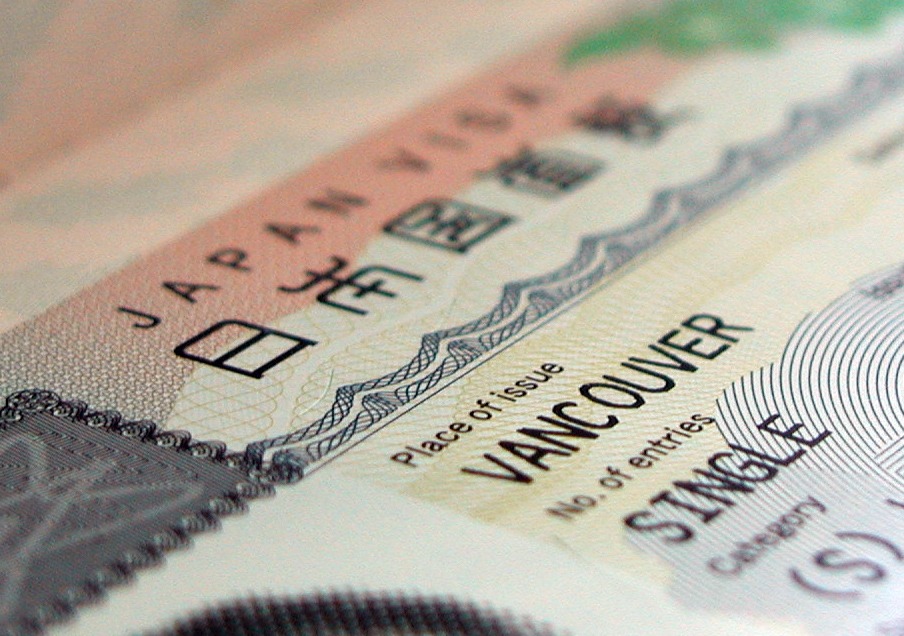So, you’ve (somewhat) what the ultimate decision to live in Japan. It’s an incredibly big move for anyone, living anywhere, and you’ll probably have the best time of your life there.
As with most decisions involving moving out of your comfort zone and being dependent on yourself and only yourself (in a foreign country like Japan, no less, where cultures and values and everyday interactions might be flipped 180 from where you’re currently living), we get the feeling of exhilaration, nervousness, trepidation, anticipation, fear, and, above all else, excitement for the unknown.

However, with great power (of being able to make such an incredibly life-changing decision all by yourself), comes great responsibility – moving to the next suburb is already a massive task, let alone a country half way across the world where English is not the primary language spoken. You may be feeling a little lost, so we’re here to help you get on your two feet and assimilate into Japan as easily as possible.
Be warned: if you’ve only attained a purely basic level of Japanese, you might struggle a bit, but we’ve found that Google Translate apps works wonders in situations of miscommunication, so that’s our first tip – download Google Translate.
Visa and Immigration

Every single country is different, so you will need to research whether there is a visa applicable for your type of intended stay in Japan in your country, and how you can apply for it. Many foreigners can apply for a Working Holiday Visa, which might allow them to stay there from 6 months up to 2 years without needed to reapply.
Of course, if you’re being sponsored by a company in Japan, then the Working Visa might be more appropriate. There are such things as spouse visa as well, that allow spouses to visit Japan for a period of time if their partner holds residency.
These are just a few of the options that people can look at. With most application processes, you will need to provide a passport, fill out a form, and provide some documentation as well as a written letter of purpose.
The immigration offices in Japan is fairly busy every day of the week – there are more expats living in Japan than you realise! There are offices in all major cities, as well as a few others sprinkled around the various prefectures. You will need to visit your local/closest office for all things related to your visa (changing the type, extending your stay, etc).
The ones in major urban cities may have a few employees who speak English, however, with the more rural offices, make sure you have Google Translate on hand if you’re not at least at the level of conversational Japanese.
For most information on visas and such, their immigration website has a lot of information to take in, and most are available in English, so make sure you do your research online before heading in to make sure you don’t forget anything,
How To Find Long-Term Accommodation In Japan?

One of the best websites to use when looking for accommodation is Leopalace21. This agency offers services across the entire country, actively hires English-speaking employees to assist with expats, provides an extensive list of choices throughout the cities and rural regions at an affordable price.
They’ve been assisting expats for over 10 years now, and we can guarantee that they know what they’re doing. They offer short-term choices (up to 3 months), as well as medium-term and long-term. Of course, the longer you stay the cheaper the overall cost will be. Many of their accommodation prices include all bills, and you’ll even get the option of internet (at an additional cost).

We recommend you have a look on their website to see what’s currently available in the areas that you are interested in. Once you have a general idea, either give them a call or make an appointment to head into the closest office to meet with someone who can guide you through the process of applying for one of the properties.
One common question asked when you’re looking for a property is what train line you want to be close to. That’s because majority of people in Japan rely on public transport to get to places, thus making their transport system massive and extremely detailed, so using train lines as a point of marker for representatives to be able to assist you in finding a suitable accommodation is an easy way to filter through properties.
The general rule of thumb is, the closer along that particular train line that the property is to the city centre, the more expensive the rent. They also take into consideration how close the actual property is to the train station, surrounding points of interest, etc.
One thing to note is that depending on how long you want to rent, they will request for payment in full, so you may need to organise your finances early on.
If you are looking for other services that can offer long term accommodation in Japan, make sure you check out these websites too:
We also recommend you to check out the housing section on Craigslist. You may find the right accommodation for you!
How to Find a Job in Japan?

Probably the most important and common question googled by expats: where can I find a job in Japan? If you’ve got a good grasp of the Japanese language (from business level upwards), then you’ve already got an edge.
Most larger companies require at least business level Japanese, as well as a few years of experience in a certain field – quite similar to applying for jobs at home. If you have a specific skillset in, say, UX design, then you’ve beaten out more than half the other candidates already.
If you don’t have any or have limited grasp of the Japanese language, then it may be a tad difficult to find jobs other than teaching English, which has a rather large demand in Japan (great news for you!). If you’re not too fussed, and wouldn’t mind teaching English for a job, then there are hundreds of private and public positions that you can apply for, in all prefectures across Japan.
Schools are formal education centres may require you to have certification such as TESOL, etc, however, there are private companies popping up every hour in the country, and most will require you just to have a degree.
If you’d like something out of the teaching realm, then a few different jobs that might interest you and you may be applicable for include:
- Modelling
- Becoming a barista
- Content writing
- Photographer and videographer for online businesses
- Editor
- Sports coaching
You can find various job openings on the following websites that we recommend:
- https://jobs.gaijinpot.com
- https://tokyo.craigslist.org
- https://jobsinjapan.com
- https://www.yolo-japan.com
- https://metropolisjapan.com/jobs/
Remember to sign up for alerts for specific roles, and check regularly to make sure you apply immediately for the jobs you’re interested in, for a higher chance of receiving a response.
How To Get A Phone Number In Japan?
If you start by googling ‘how to get a sim in Japan’, you will find that there are many suppliers out there, but it might take while to whittle it down to one that fits your needs. We will run through two suggestions that might be able to suit the majority, but by all means look into it deeper if they don’t suit your specific needs:
Sakura Mobile
Sakura Mobile is one of the most popular sim providers in Japan. They provide options for short-term traveling as well as long-term stays. They also provide pocket wifis for those wanting a lot of data to travel. For expats though, you would most likely be going for their ‘Voice + Data Sim’, which starts at 2980yen ($28USD) for 3GB a month, up to 20GB a month. They also offer ‘Data Only Sims’ which are great for tablets and such, starting at 1980 ($18USD) for 3GB a month, up to 20GB a month.
To apply at Sakura Mobile, all you need to do is fill in an online form. You will need to supply a copy of your residence card (this is the easiest, most hassle-free option, otherwise you can supply a passport and utility bill, Japanese passport, etc). To pay for your monthly bill, you can either supply a credit card number, or opt to pay cash at a convenient store. Sakura Mobile pride themselves in being able to provide top-notch English support, so this may be something you want to consider.
Get a SIM card with Sakura Mobile >>
Mobal
Another option that is lesser known but equally as good is Mobal. They offer sims that allow unlimited use of data – insane! They provide short-term sims, starting at 3990yen ($37USD) for 8 days (does not include voice or text), up to 16500 yen ($152USD) for 90 days (includes voice or text). However, for expats, we recommend getting their most popular plan: their ‘Voice + Text + Data’ plan, which offers unlimited data as well as voice and text.
It usually costs 6000yen ($55USD), however it’s on sale at the moment for only 4500 yen! If you’re on a budget and don’t require excessive data, we recommend the ‘Voice + Text’ plan which is only 1,000 yen ($9USD), and hop on the free wi-fi where you can.With Mobal, you’re not locked into a contract, you can pay online with a credit card, and all you need to get started is a passport.
How To Open a Bank Account In Japan?

There are a handful of banks that cater for foreigners, however, one of the easiest ways to get a bank account is through Japan Post. Whilst we wouldn’t say the process is seamless, the steps are fairly simple, and if you come across an employee that knows basic English, then most of your worries should disappear.
You will need to locate the Japan Post Bank that is closest to your address (they differentiate from the purely Japan Post stores, you can tell by their sign – look for a green sign that says ‘JP Bank’ as opposed to just red), head in there with your passport and ID card or health insurance card, request a form for the bank account and fill it in. You may need some assistance, so bring out the Google Translate!
Otherwise, if your assistance speaks some English, then you should be ok. It will take at most a week for the card to be sent to you. They will also send you a check book where you can record your withdrawal transactions every time you go to the ATM.
Please note: The Japan Post Bank will only issue an ATM card, not a debit card, therefore you will not be able to pay with your card at any eftpos machines, you will need to withdraw money beforehand.
Another “Gaijin Friendly” bank is Shinsei Bank. They have few english speaking staff at their office near Tokyo station.
Groceries In Japan

Due to the condensed nature of Japan’s population, all suburbs have at least 2-3 different grocery stores, often within close proximity to each other. All grocery stores will sell all the basic necessities that you need for food, however, each one also offers their own unique contribution of products, so no two grocery stores are ever the same (the differences are usually in the snack section, the fresh food section, and the bakery section, just FYI).
You will find that there will be differences in things such as fresh vegetables, spices, types of cereals, and things like that. Because of the climate in Japan, root vegetables are often available across all supermarkets.
They will include the likes of potatoes, carrots, radish, etc. Such vegetables as tomatoes, cucumber, corn, and leafy greens are not as readily available, and are often limited to the warmer months. If you’ve never cooked with the aforementioned vegetables before, now would be a good time to learn some new recipes!
You’ll find that most grocery stores will also have an aisle for alcohol, and when you purchase it, the salesperson will usually ask for you to confirm that you’re above 21 on their screen before scanning the items through.

Major fashion retail stores such as Zara, H&M, Forever21 might start off being your go-tos when you first move to Japan, purely for the fact that they cater for a wide range of audiences, their prices are fairly decent, and they’re familiar and comforting enough for you to not feel like you’re in a completely new world.
However, the longer you live in Japan, the more adventurous you will become, and the more you’ll want to duck into those niche boutiques every time you’re in Shibuya and Harajuku just to see what’s the latest and greatest in fashion and see what unique item you can find.
If you’re shopping for homeware and furniture for your new place, there’s quite a few selection of shops in Japan that you can head to. Ikea, for example, holds quite a big presence there, and there are a few sprinkled across the country. Here, you can pretty much purchase everything you need, from pots and pants, to decorative vases, to sofas and dining tables, bathroom caddies, and everything in between (don’t forget to grab yourself a hotdog on your way out, they provide fried onion here in Japan!).
Nitori is Japan’s smaller-scale version of Ikea, which sells more Japanese-oriented furniture (i.e. smaller, more compact) and homewares. They also have major presence and will be available in most major cities and across all prefectures.
If you want to buy electronic devices or equipments, head to Yodobashi or Bic Camera. One of the most popular Yodobashi shop in Tokyo is the one you will find in Akihabara. it’s huge!

If you’re looking to save some money, try to go online to websites such as craigslist and search for free items that people are giving away – you may get lucky and be able to fit out an entire apartment without having to spend a yen!
Garbage Disposal In Japan

Garbage disposal is often one of the biggest shocks that foreigners get when they move to Japan. The Japanese society is serious about their recycling. Some go as far as compartmentalising up to seven different types of rubbish, and sorting them out like that weekly. However, most places don’t go to that level.
When you’re renting in Japan, the most likely scenario would be that you would need to separate your burnables (e.g. your everyday food wastes, etc), your non-burnables (e.g. ceramics, etc), and your glass bottles, aluminium cans, and plastics. It can get more intricate than that, but as long as you understand the basics, you will be fine. Most rental agencies will provide a run-down of how to organise your garbage, how often you need to do it, and what not to do. You will most likely be given a printout of examples so that you don’t get lost.
It is heavily frowned upon to mix up the garbage types, as the collector will most likely need to sort through it later, and you may get fined. This is a big part of the Japanese culture, so please be respectful and try to do the right thing.
Japanese Etiquette

Japanese etiquette is pretty much a world-wide phenomenon now. Everyone has heard about their top-notch hospitality, their willingness to help under any circumstance, their unwillingness to let their inability to speak English get in the way of them communicating a piece of information to you – they are truly world-class.
As you can imagine from this type of reputation, the Japanese community hold etiquette in quite high regard. There are a few main social rules that you need to follow, and a lot more will become evident as you navigate your way through their community.
The Japanese are a collective society, meaning at the end of their day, their actions are not normally just for themselves but for the social and family groups that they belong to. They pursue actions not just for themselves, but also consider all those around them. For example, the public transport system is one of the best in the world, and everyone in Japan uses them.
However, unlike many countries where there may be music playing from the speakers, or constant conversations buzzing amongst commuters, Japanese public transport systems are usually rode in silence. You will hear the occasional chit-chat, but it’s usually very quiet and discreet – no one wants to disturb the silence for anyone else and they’re usually on their phone.
Food is also never eaten on public transport so as to prevent others from riding in discomfort at the smell of someone else’s food. When you ride with a backpack on, take it off and carry it at the front of your body so you don’t accidentally whack someone whilst moving. These are just a few of the common mannerisms there.
In the general public, you don’t hear much screaming or yelling along the streets. People don’t eat whilst walking, they normally purchase food to bring home, or they eat it where they purchase it, dispose of the rubbish, and move on. However, you will often see many tourists who eat on the go, unaware of this etiquette.
When meeting someone new, often the introductions are met with a small bow, especially if the other person is older than you, this is a sign of respect. This particular rule has relaxed a bit with foreigners in recent years, however, it’s still quite prominent amongst the Japanese community.
A unique eating etiquette, and one many people may think is a joke when they first hear of it, is super loud, distracting, possibly obnoxious slurping of noodles that you deem delicious. Whilst many people frown upon the notion of slurping food in general, in Japan, this is a sign of appreciation and respect for the chef, a non-verbal way of saying “This is absolutely delicious!”. So if you’re in a joint and you’re really feeling a particular bowl of noodles, go ham!
More info here: Japanese Etiquette.
How To Make New Friends In Japan?

When you’re thinking about moving to a country where English is not the primary language, a major concern would naturally be the difficulty in meeting people and having a decent social life. In a country like Japan, it may come across as a nerve-wrecking to go out and try to create friendships with locals when there’s going to be huge language barrier separating you guys: what if it’s awkward? What if they don’t get my humour? What if we have nothing in common?
However, remember that there is a massive population of expats currently living in Japan right now, so you can actually meet people from all over the world if you head to the right places.
One of the best ways to meet people is, of course, at work. Generally, when you land a job in Japan (for example an English-teaching one), there will be plenty of foreigners currently working there, plenty more who have left before you, and plenty more who will come after you.
Thus, there will be plenty of opportunities to meet people and try to find a common interest, to meet up after or before work, or even on the weekends to muse about the usual work issues and get to know each other. Because you’re both currently working for the same company, you already have some common ground, and you can just go from there. Also, going for a beer or a drink is always a good idea to loosen some nerves.
Another way to get to know people is to take some Japanese language classes. You will meet other like-minded individuals who obviously love the Japanese culture enough to move there, and have similar goals in learning the Japanese language, so you can possibly organise after class meet-ups to practice together, or just get to know each other.
An unconventional way of meeting the locals and possibly making friends with them is through a homestay. A homestay is basically when you reside with a family in their home, as if you are extended family, for a fee. You interact with them daily, and often prepare and eat meals with them and sometimes even do activities with them. This could somewhat develop into a long-lasting friendship with either the parents or even their children.
Lastly, a completely conventional way of meeting people is hanging out at a club or a bar on the weekend. If you are a party-goer, this could not be more true. Get a few drinks into you, gather up the courage to say hi to a few people, strike up a conversation with the person next to you at the bar or even in the bathroom, and off you go.

Last but not least, mobile apps can be super helpful to meet people with the same interests as you in Japan. One of the best is probably the app Meet Up.
—
The prospect of living in Japan can be daunting, but we hope this article has given you some insight as to how you can assimilate into the society without too many hiccups.
Moving out anywhere, even down the street, can be a headache for anyone, but if you plan properly and have a good idea of what you’re getting yourself into, create a checklist and jot down all essential information on what to do, where to go, who to speak to, and have a basic plan as to how you’re going to tackle the task of building this next exciting chapter of your life, you’ll be just fine. 🙂




Enjoyed reading, a lot of useful information that I was wondering about, thank you!